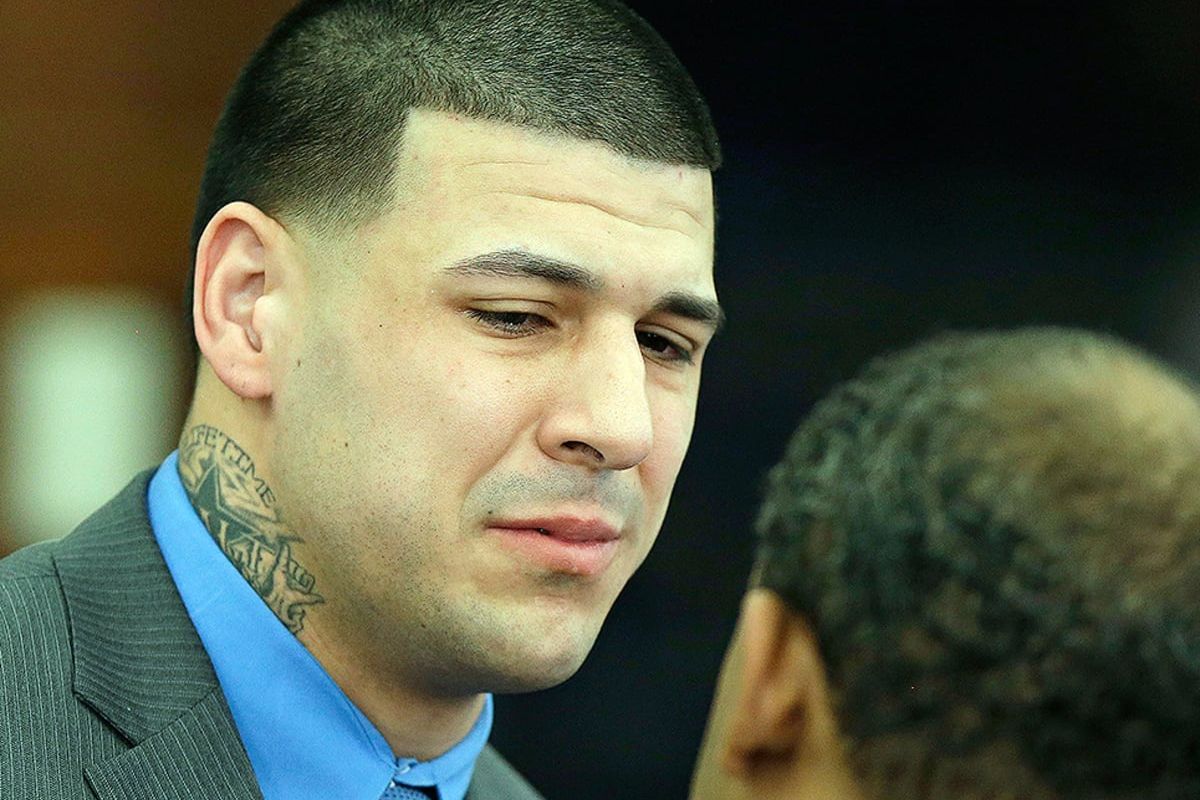Before Aaron Hernandez died in 2017, he was a world-class athlete who got the most significant signing bonus ever given to an NFL tight end: $12.5 million. This helped him live a life that most of us can only dream about. By the time he was in his mid-20s, Hernandez was living with his fiancee, Shayanna Jenkins, and their newborn daughter, Avielle, in a $1.3 million mansion in Florida. He looked like he had everything.
Even though Aaron Hernandez seemed to be the perfect American success story behind the scenes, his life had been going crazy ever since his father died when he was 16. The privileges and fame that came with being a superstar only worsened Hernandez’s problems. This led to him killing Odin Lloyd in 2013 and getting convicted of murder two years later.
Then, in 2017, Aaron Hernandez killed himself by hanging himself with the sheets from his bed in his prison cell. His death raised hard questions that may never be fully answered.
Aaron Josef Hernandez was born in Bristol, CT, on November 6, 1989. Their alcoholic father regularly hurt him and his brother Jonathan physically and emotionally. In his book The Truth About Aaron: My Journey to Understand My Brother, Jonathan Hernandez said that Aaron Hernandez was sexually abused by two older boys when he was only six.
Aaron Hernandez, a tight end for the New England Patriots, at the end of practice on January 27, 2012, in Foxborough, Massachusetts. The following year, he would be caught and charged with murder.

Even though it seems like both boys could use football to bring some stability to their unstable lives, Aaron Hernandez’s dedication to the game probably made his emotional pain worse when he started getting brain injuries on the field. And it may have put him on the path to a CTE-related psychosis that destroyed his life and the lives of those around him.
But Hernandez’s violent side was clear from the start of his career. As a 17-year-old freshman at the University of Florida, Hernandez got into a fight with a bartender over a $12 bill, which caused the bartender’s eardrum to burst. Lawyers from the University of Florida took care of the situation, and the charges of assault against Hernandez were put off indefinitely.
Hernandez’s bad behaviour got worse very quickly. In 2007, in Gainesville, Florida, police looked into Hernandez as a possible shooter in a double shooting that happened on September 30. Randall Cason, Justin Glass, and Corey Smith were waiting at a red light in a car when an attacker came up and started shooting, hitting Smith and Glass. Both made it through the attack.
Cason picked Hernandez out of a lineup at first, but he later changed his mind and said that he had never seen Hernandez at the scene. Hernandez was never charged with the shooting, and his name was never mentioned in news stories because he was a minor at the time.
Aaron Hernandez did well in college football, which caught the attention of the New England Patriots. They picked him in the fourth round of the 2010 NFL draught, 113th overall. If Hernandez saw his success as a chance to stay on the right side of the law, he didn’t take it. In 2012, he was accused of killing two people.
Aaron Hernandez was in court in Attleboro, Massachusetts, on July 24, 2013, one month after he was arrested on suspicion of killing Odin Lloyd. Daniel Jorge Correia de Abreu and Safiro Teixeira were shot and killed in their car in the South End of Boston on July 16, 2012. Witnesses said they saw Hernandez pull up next to the victims’ vehicle and shoot Abreu and Teixeria several times, killing them while also trying to shoot other people in the car.
Even though he was eventually charged with first-degree murder in the killings, those charges came after Hernandez’s fall from NFL stardom had already started. In the end, Hernandez was found not guilty of these charges. This was mainly because the crime scene investigation went wrong, so there was no physical evidence at his trial.
Stay tuned for more updates, Nog Magazine.